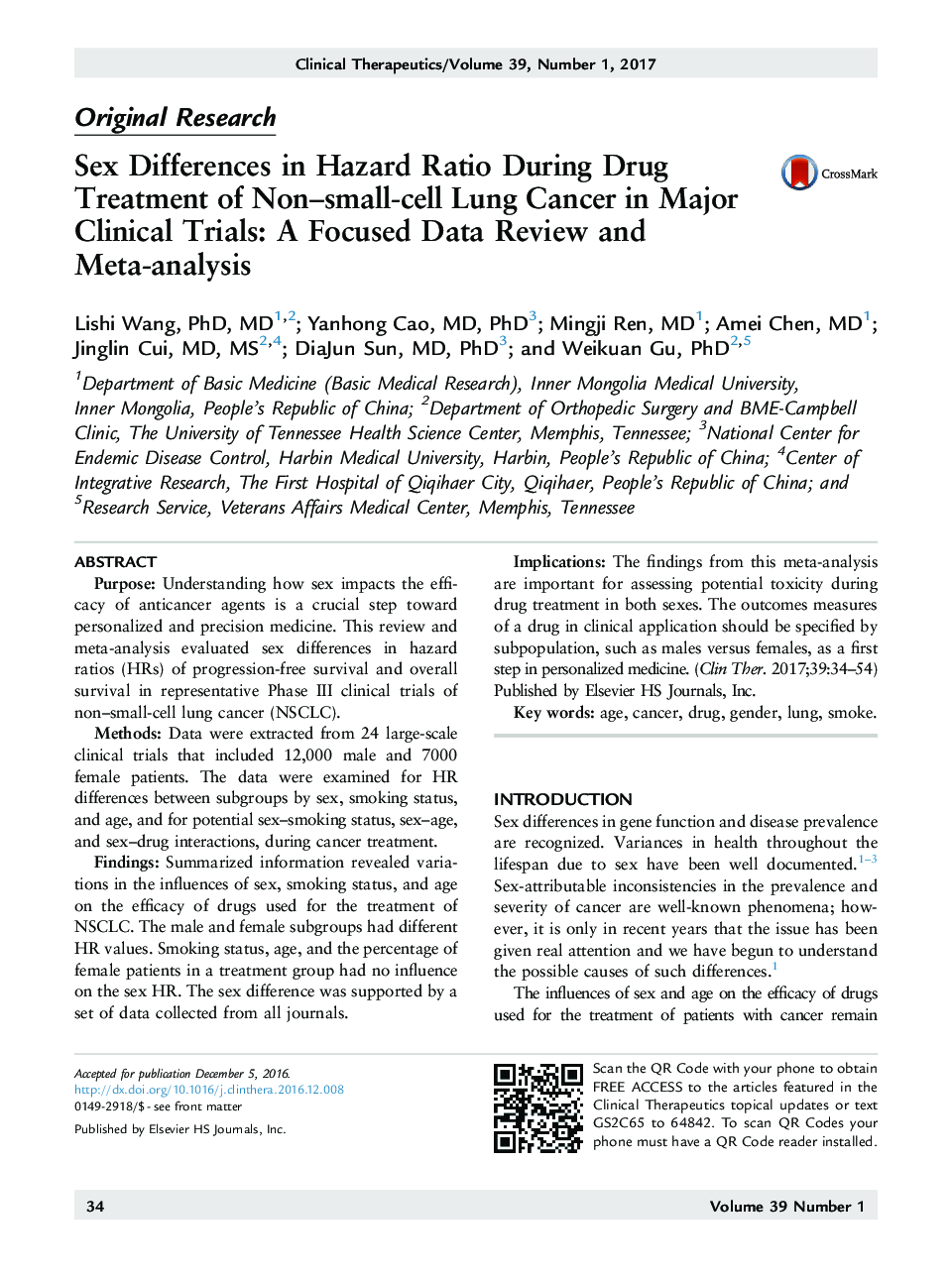| کد مقاله | کد نشریه | سال انتشار | مقاله انگلیسی | نسخه تمام متن |
|---|---|---|---|---|
| 5553885 | 1403019 | 2017 | 21 صفحه PDF | دانلود رایگان |
PurposeUnderstanding how sex impacts the efficacy of anticancer agents is a crucial step toward personalized and precision medicine. This review and meta-analysis evaluated sex differences in hazard ratios (HRs) of progression-free survival and overall survival in representative Phase III clinical trials of non-small-cell lung cancer (NSCLC).MethodsData were extracted from 24 large-scale clinical trials that included 12,000 male and 7000 female patients. The data were examined for HR differences between subgroups by sex, smoking status, and age, and for potential sex-smoking status, sex-age, and sex-drug interactions, during cancer treatment.FindingsSummarized information revealed variations in the influences of sex, smoking status, and age on the efficacy of drugs used for the treatment of NSCLC. The male and female subgroups had different HR values. Smoking status, age, and the percentage of female patients in a treatment group had no influence on the sex HR. The sex difference was supported by a set of data collected from all journals.ImplicationsThe findings from this meta-analysis are important for assessing potential toxicity during drug treatment in both sexes. The outcomes measures of a drug in clinical application should be specified by subpopulation, such as males versus females, as a first step in personalized medicine.
Journal: Clinical Therapeutics - Volume 39, Issue 1, January 2017, Pages 34-54
